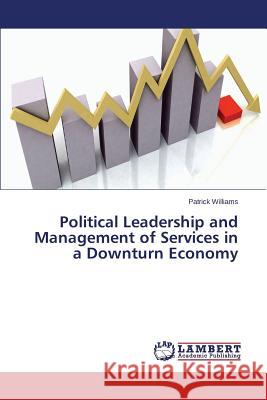Political Leadership and Management of Services in a Downturn Economy » książka
Political Leadership and Management of Services in a Downturn Economy
ISBN-13: 9783659786730 / Angielski / Miękka / 2015 / 248 str.
Political Leadership and Management of Services in a Downturn Economy
ISBN-13: 9783659786730 / Angielski / Miękka / 2015 / 248 str.
(netto: 328,36 VAT: 5%)
Najniższa cena z 30 dni: 344,78 zł
ok. 10-14 dni roboczych
Bez gwarancji dostawy przed świętami
Darmowa dostawa!
Municipal leaders in the United States face difficult decisions when prioritizing non-mandated civic projects for funding, especially when operating budgets are restricted. This phenomenological study investigated municipal leaders decision-making processes using a conceptual framework based on three theories. It specifically explored personal and organizational decision-making processes related to the prioritization and funding of non-mandated civic projects. Thematic analysis identified expert opinions, the time and cost to complete a project, the perceived value relative to expense, and the availability of additional funding sources as themes important to understanding participants decision-making processes. Areas such as infrastructure improvements, traffic congestion, community involvement, and formal processes in their municipalities were in need of improvement. Positive social change can flow from greater governmental transparency through municipal decision makers adoption of systematic decision-making systems and processes. Results add to the research base by contributing to a better theoretical understanding of organizational decision-making processes.











